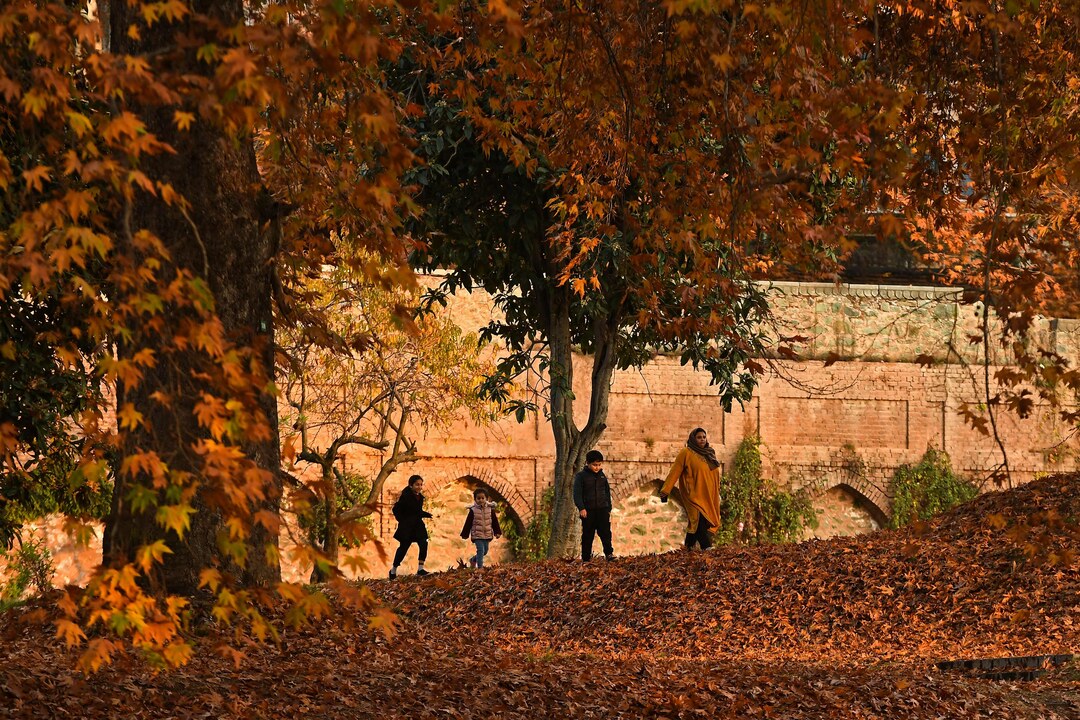The past two years or so have been a remarkable journey for the union territories of Jammu and Kashmir, and Ladakh.
It was made possible by the decision of the 1.3 billion people of India, represented by a two-thirds majority in the parliament, to reorganize the erstwhile state of Jammu and Kashmir with the fundamental objective of delivering development and governance to the people there who had suffered seven decades of violence thrust upon them from across the border.
On Aug. 5, 2019, the parliament of India rendered inoperative the archaic and anachronistic provisions of the Indian Constitution that had kept the erstwhile state of Jammu and Kashmir, which voluntarily acceded to India in 1948, away from the national mainstream.
The state was reorganized into two union territories — Ladakh, and Jammu and Kashmir — and their administration was made the direct responsibility of the government of India. It was a decision completely internal to India, in which no external boundaries were changed.
As a result of these changes, the true potential of the northernmost regions of India is experiencing unprecedented realization in every sphere of human development, for the first time since India’s independence. Rapid development of the region’s economy and improvement in the quality of lives of the common people has been driven by unprecedented government investment in infrastructure projects in the fields of education, healthcare, road and rail connectivity, energy, flood control, drinking water, sanitation and more.
Various progressive laws — covering areas including domicile certification, delivery of social justice, advancement of women’s rights and empowerment, support for vulnerable sections of the community, expansion of education and employment opportunities — have also been rolled out.
Several disenfranchised groups, such as refugees from West Pakistan, Gurkhas, Safai Karamcharis and women married to non-Kashmiris, have been given domicile rights. All central laws have been extended to the union territory, including those designed to protect the social, economic and political rights of women, children and underprivileged sections of society, and ensure transparent and accountable governance.
Many developmental projects have been announced, and all of the central government’s development schemes, such as Saubhagya, PM Ujjwala Yojana, Ujala, Swachh Bharat Abhiyan, Ayushman Bharat and PM Kisan, have been extended to both of the union territories, something to which they did not previously have access.
In the budget for 2020-2021, 36,715 crore rupees ($4.96 billion) was allocated to the two union territories. Recognizing the opportunities, especially in 14 focused sectors, private investors have also flocked to the region. The panchayat system of local governance and grievance redressal has been reactivated.
The strides in socioeconomic development have been matched by sincere steps taken by the administration and people of Jammu and Kashmir in the all-important area of participative democracy.
N. Ram Prasad
The strides in socioeconomic development have been matched by sincere steps taken by the administration and people of Jammu and Kashmir in the all-important area of participative democracy. For the first time ever, elections for block development councils, the second tier of Panchayati Raj institutions, had an unprecedented 98 percent voter turnout.
Jammu and Kashmir and Ladakh are on a mission to renovate, reinvent and take a quantum leap forward from being a deindustrialized region to one of the fastest-growing areas in the country.
Some of their noteworthy achievements during the past two years include:
1. They are rated among the best-performing union territories in India, thanks to the empowering framework and access to national resources.
2. The COVID-testing rate is almost four times that of national average and the region was one of the first to set up hospitals dedicated to the pandemic.
3. A first-ever real estate summit resulted in 39 memorandums of understanding worth $2.4 billion.
4. A total of 21,943 small projects were completed in the past year alone.
5. Twenty-one mega projects under the Prime Minister’s Development Package have been completed and nine more are likely to be completed by the end of the current financial year. Notable among them are: The world’s highest rail bridge, over the Chenab River, which will connect Kashmir with the rest of India; the Jammu-Srinagar National Highway; three medical colleges; flood-management work on the Jhelum; hydroelectric projects; 22 colleges; and the Jammu Ropeway Project.
6. Power-generation capacity is set to be doubled in the next five years.
7. Road and tunnel projects worth $13.5 billion are underway.
8. Eleven thousand vacant government posts have been filled, based on merit and with complete transparency.
9. In 2021 alone, $2.5 billion of investments flowed into the region.
Countries across the world recognize Kashmir as an integral part of India and many are keen to invest in the success story of the region. For instance, the government of Dubai recently signed a memorandum of understanding with the administration of Jammu and Kashmir to ramp up infrastructure and industrial development in the region.
Jammu and Kashmir signed agreements with seven government and privately owned UAE-based companies at Dubai Expo 2020 for investments in the territory’s real estate, infrastructure, tourism, healthcare, and employment sectors, among others.
Other countries, such as Russia, Uzbekistan, Bangladesh, Nepal, Turkey and Belarus, have expressed interest in investing in the region.
These milestones and achievements are adding to the joyous mood of the country as it celebrates Azadi Ka Amrut Mahotsav. It shows that the two union territories are not only steadily adopting the principles of good governance but are also engaged in a seismic shift in addressing the concerns of the most vulnerable sections of society. Despite negative propaganda and support for terrorism from across India’s borders, they are determined to march along the road to development, peace and prosperity in step with the rest of India.
The resolve of the union territories of Jammu and Kashmir and Ladakh for people-centric growth hinges on pragmatism, perseverance and confidence.
The plight of the people of the region is finding great resonance and empathy among their brethren in the countries of the Middle East who are also now facing increasing violence unleashed on them from across their borders.
India remains thankful to these countries, which have rightfully and steadfastly recognized that Jammu and Kashmir is an integral part of India and the issues there are an internal matter, and have espoused peace and amity in the region while rejecting all attempts at destabilization through terrorism and negative propaganda.
• N. Ram Prasad is deputy chief of mission at the Indian Embassy in Riyadh.












